13 unexpected things to clean with rubbing alcohol around the house
Banish bacteria and and leave surfaces sparkling with these expert-approved tips


You probably have a bottle of rubbing alcohol stashed away in your medicine cabinet – but did you know it has plenty of uses around the house too?
Not only is it effective at killing germs and bacteria in cuts and wounds, it works just as well on common household surfaces and items. From removing stains to sterilizing sticky residue, there are a whole host of ways to use it, including some you may never have even thought of.
So, if you require some cleaning tips, we've spoken to our experts for a rundown on rubbing alcohol, and tips about how you can use it around your home.
13 things to clean with rubbing alcohol around the house
1. Stainless steel
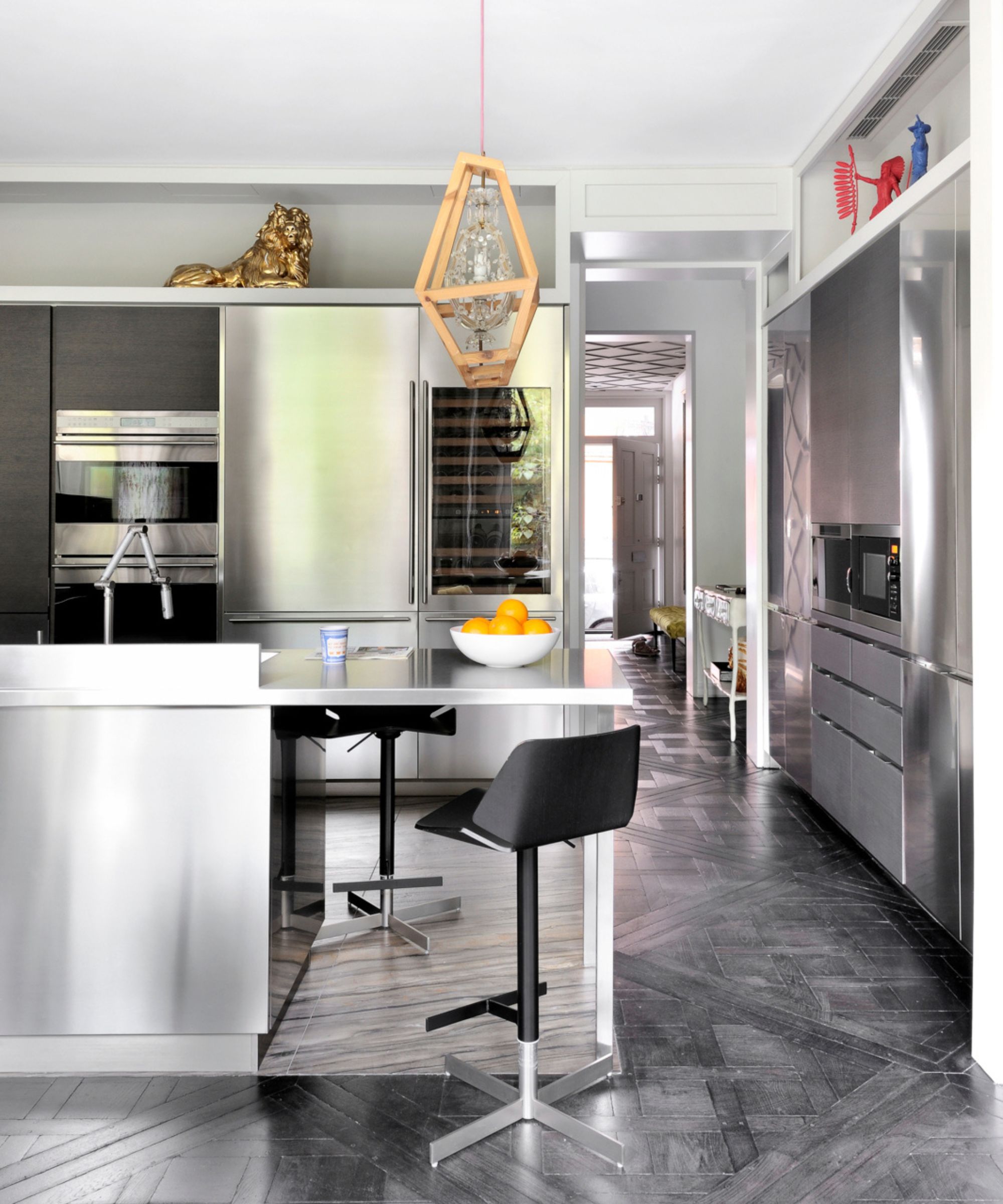
Wondering how to clean stainless steel appliances and surfaces? Rubbing alcohol evaporates quickly, meaning it’s great to use on stainless steel.
‘It effectively removes fingerprints and smudges, leaving a streak-free finish,’ says Mick Jain, the Operations Manager of VMAP Cleaning Services.
As it’s so effective at sanitizing, it can also be used for common areas where bacteria gather, such as a backsplash in the kitchen or faucets in the bathroom.
‘We routinely use rubbing alcohol to sanitize faucets and other kitchen and bathroom hardware,’ recommends Austin Jones who has 30 years of experience advising clients on safe cleaning practices as CEO of Millennium Facility Services.
2. Ink stains
There is nothing worse than getting an ink stain on your marble countertop or wooden floors, but rubbing alcohol is the perfect solution to removing them effectively without damage.
‘The solvent properties of rubbing alcohol break down the ink’s oil and pigments, making it easier to blot out the fabrics or wipe off hard surfaces,’ says Taylor Riley, co-owner of Impact Cleaning Professionals and founder of Boom Facility Service Advisors, with years of experience in the cleaning business. ‘To clean ink stains with rubbing alcohol, first place a paper towel or cloth under the stained fabric to absorb the ink as it loosens,’ which will ensure whatever is below your stain doesn’t get ruined as the ink transfers from the original material.
‘Next, dab the stain with a cotton ball or cloth soaked in rubbing alcohol, ideally with a concentration of at least 90%, being careful not to rub,’ which will avoid spreading the ink. Continue blotting until the ink lifts.
3. Blinds
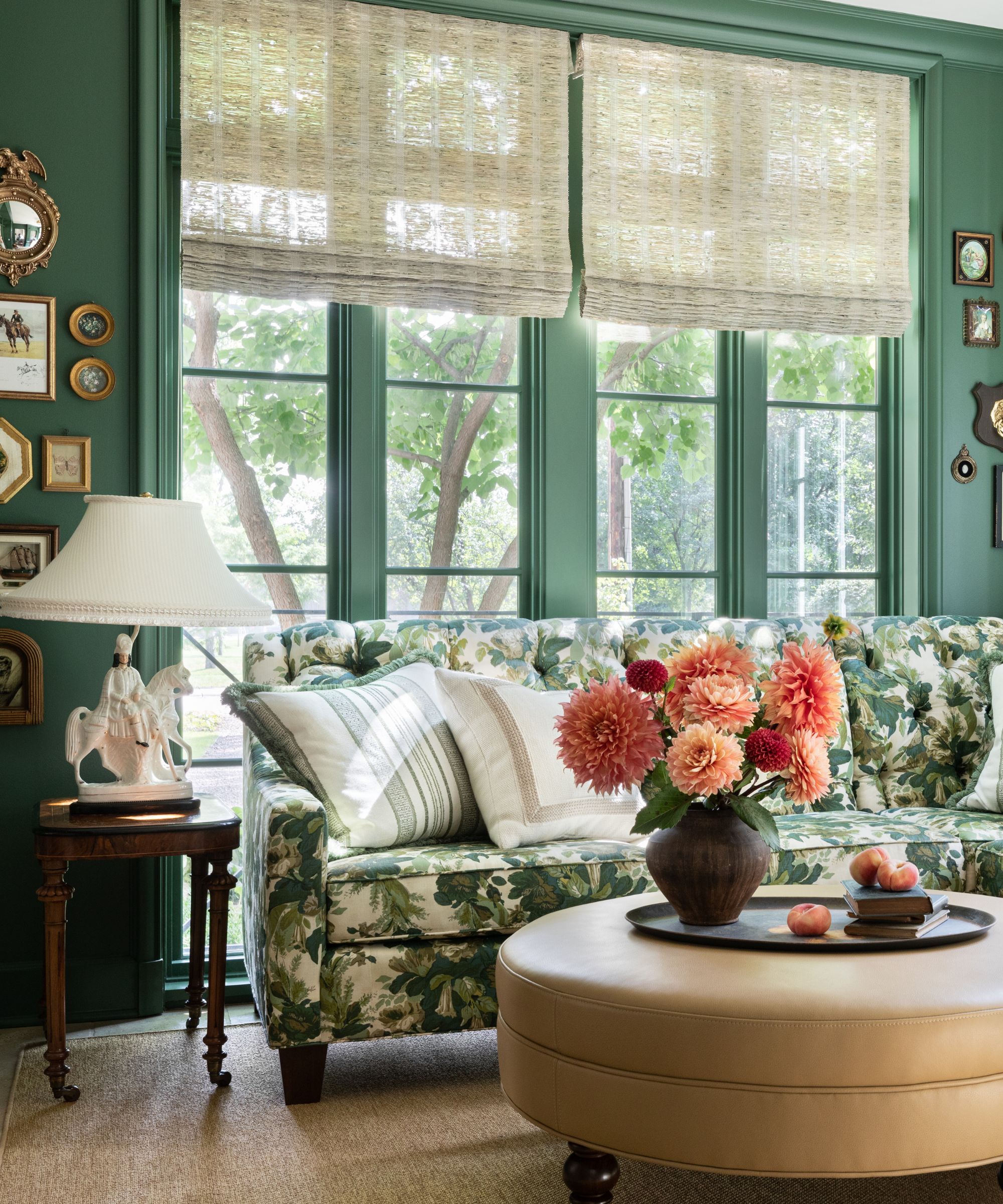
As they’re notoriously difficult to not only clean but keep clean, you might have been wondering how to clean blinds, and rubbing alcohol is a great way to do so.
‘You can wrap a washcloth or a microfibre cloth soaked in rubbing alcohol around a spatula or tongs,' says Peter Holevich, domestic cleaning expert at Fantastic Services, who helps over 50,000 customers a month. 'Simply place a rubber band around a cloth, and clean between the slats of the blinds. This can be a quick and easy way to clean any hard-to-reach spots on them,’ which should also remove any dirty marks that ruin the look of your blinds.
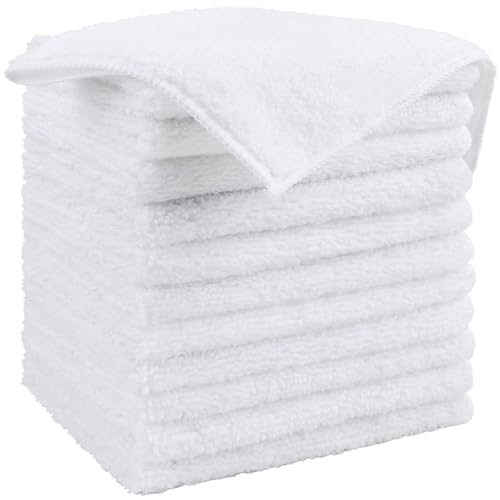
These extra-thick and super absorbent microfiber clothes can be used wet or dry and with rubbing alcohol, to get your surfaces gleaming and your decorations dazzling. They are machine washable too, so you can use them again and again.
4. Adhesive residue
Sticky residue can ruin your surfaces and belongings, and be incredibly difficult to remove. Luckily, Holevich is on hand with an easy method to get it gone for good.
‘Apply rubbing alcohol directly onto the sticky area and let it sit for a few minutes to break down the residue,’ he says. ‘Next, gently rub the residue with a cloth or sponge, and it should peel away easily. Finally, wipe the area clean with a damp cloth to remove any remaining alcohol or adhesive.’
This works so well as rubbing alcohol acts as a solvent, breaking down the chemical bonds in the adhesive and loosening its grip on the surface, so you’ll know how to remove stickers from your furniture and how to get stickers off a mirror.
5. Electronics
Like with stainless steel, as rubbing alcohol evaporates so quickly it’s the perfect thing to clean your electronics with.
‘Every kid has some sort of tablet,’ says Ryan Knoll, owner of Tidy Casa, a residential cleaning company that has served the Greater Phoenix area for over 20 years. ‘Rubbing alcohol diluted with water on a rag will help wipe away germs.’
He recommends using a microfiber cloth with a dab of rubbing alcohol or mixed with approximately a half ounce of water to wipe them down.
6. Glass and mirrors
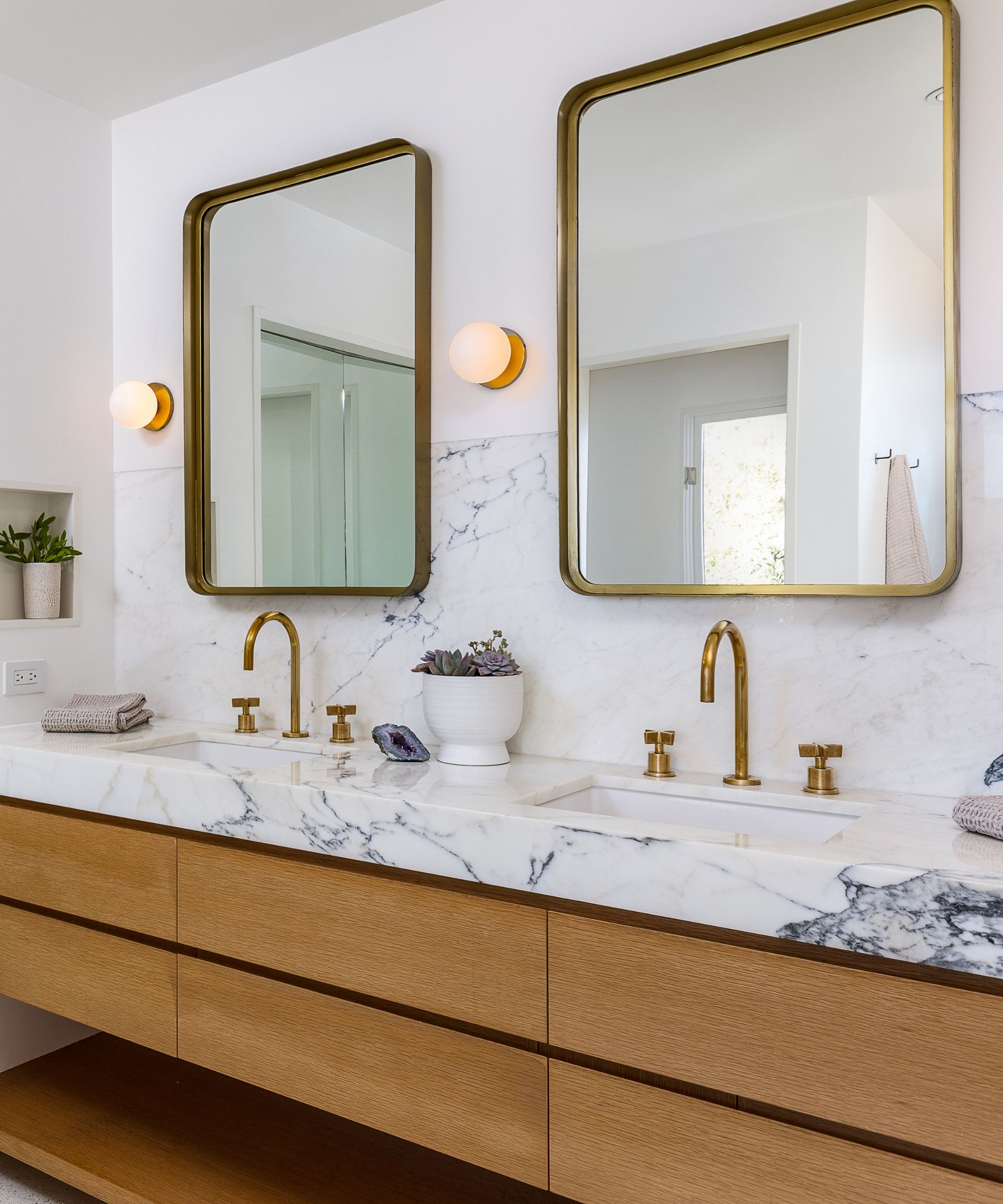
If you want to know how to clean a mirror without streaks or how to clean glass shower doors, rubbing alcohol works well due to its quick evaporation properties.
‘Say goodbye to smudges and grime,’ says Daniel Brown, cleaning expert and CEO of Handy Cleaners, with over 10 years of experience in the industry. ‘Using rubbing alcohol on glass windows and mirrors can cut effortlessly through dirt and provide crystal-clear results. The evaporation is quick, which actually helps avoid streaks and leaves the area shining and bright.’
This method also requires a lot less elbow grease than traditional cleaners, meaning your glass and mirrors will be sparkling with less stress and sweat.
Ken Doty, COO and cleaning expert at The Maids recommends making a solution of water and alcohol, to really cut through scum. ‘Scrub thoroughly to ensure the solution soaks in and breaks down the grime,’ he says. ‘Wash and rinse with water to eliminate any lingering odor,’ and you can use this on kitchen countertop stains, too.
7. Hairspray residue
If you regularly use hairspray, you will know that the cloudy, sticky residue it leaves on surfaces and floors can be a real nuisance, but rubbing alcohol is a proven solution.
‘It dissolves sticky build-up on surfaces like mirrors and countertops,’ says Jain. Simply use a cotton pad or cloth to wipe it over any marks to leave your surfaces streak and spot-free.
8. Kitchen sponges
Kitchen sponges become a breeding ground for bacteria, but it’s not feasible, or eco-friendly to replace them every day. Enter, rubbing alcohol.
‘Soaking kitchen sponges in rubbing alcohol will disinfect them and it’ll be a way for you to save money that you’ll spend on buying new sponges,’ says Holevich. ‘This is actually very important to do because kitchen sponges are one of the items in the kitchen that harbor a lot of harmful bacteria and need frequent replacement.’
This would also work for washing up brushes, which trap bacteria and dirt between their bristles and can be difficult to clean.
9. Jewelry
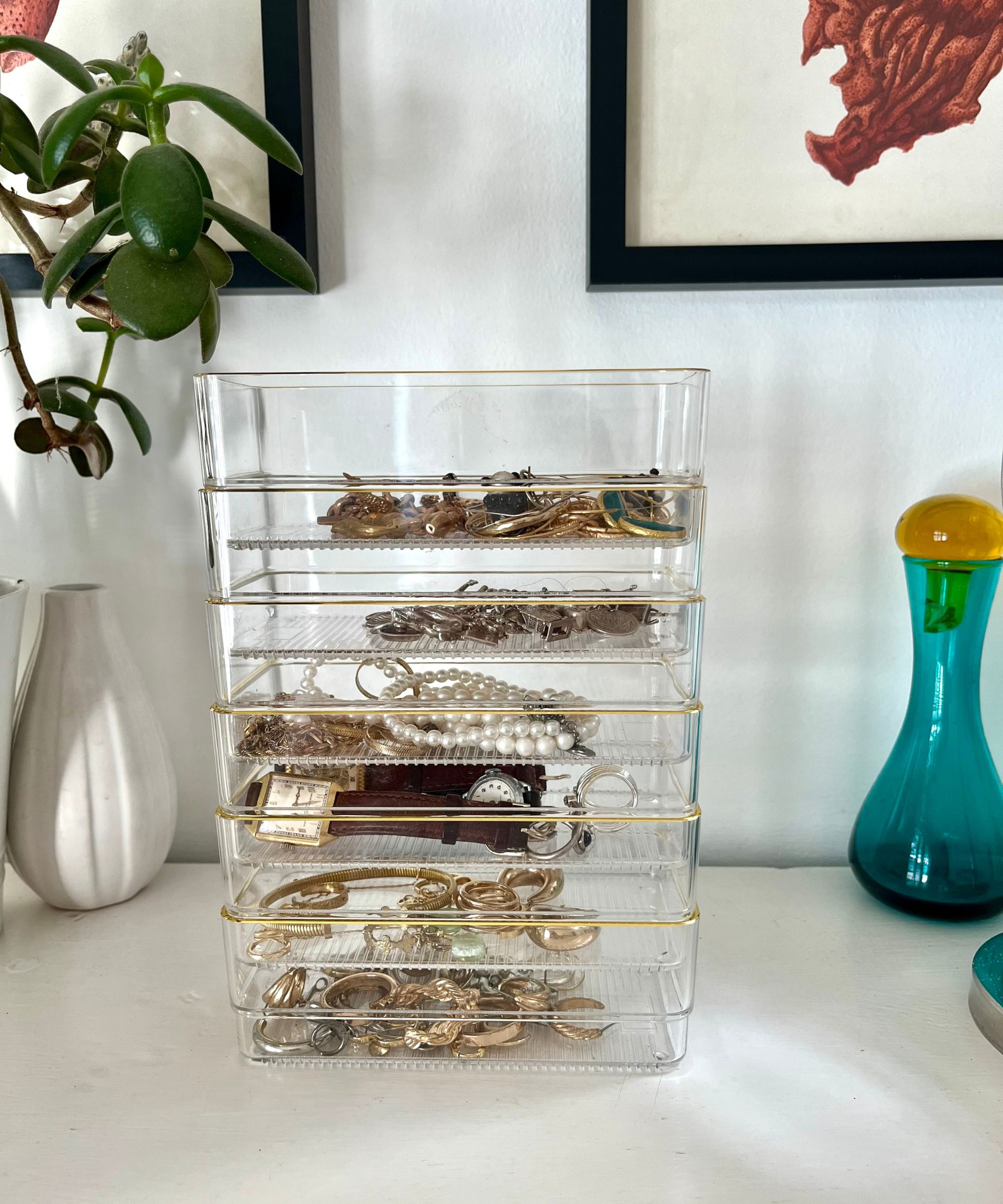
Once you’ve finished organizing your jewelry, in acrylic organizers, like this handy Display Stand from Walmart, you might realize that it needs a cleaning. It is often something we all neglect doing, but your jewelry should make you feel good, and being shiny will make it the perfect accessory to any outfit.
‘Rubbing alcohol cleans and disinfects jewelry, especially those that come into regular contact with skin oils and lotions,’ says Josh Miller, professional cleaner and CEO of Clean Carpets. ‘It cleans grime and restitutes sparkle without causing any kind of harm to metal or stones.’
10. Microwave interiors

We’re all guilty of not sanitizing them nearly enough, but it can be really difficult to know how to clean a microwave.
'If the interior of your microwave has splatters from heating food, add equal parts rubbing alcohol and water in a microwave-safe container and heat it for around one to two minutes,’ says Holevich. ‘After that, let it cool down a bit, dip a microfibre cloth in it, and use it to wipe the interior of the microwave.’
The steam created by microwaving the solution will have loosened the stuck-on food and splatters, making it easier to remove, so your microwave will look as good as new.
11. Refrigerator
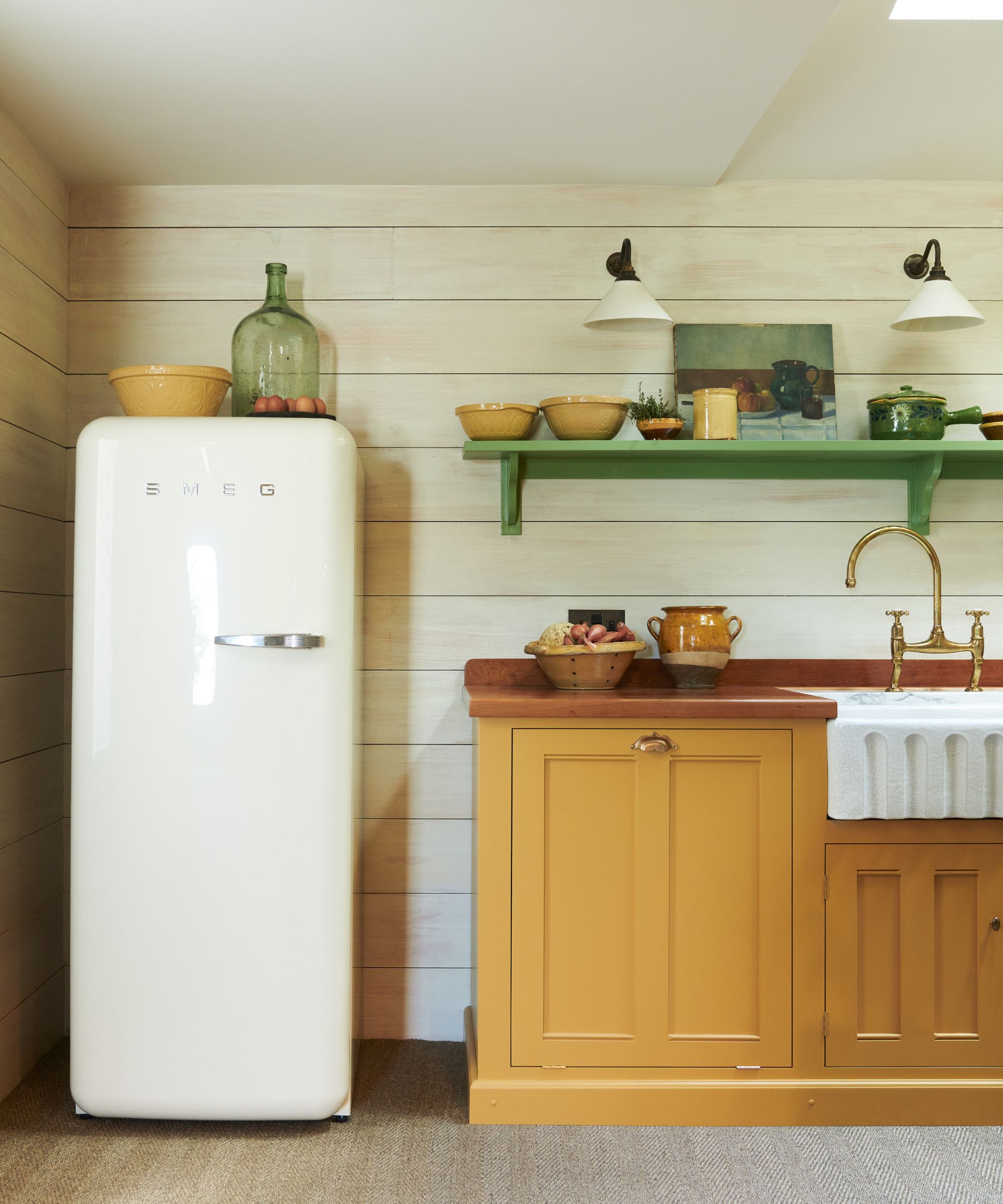
Keeping your refrigerator clean truly can feel like an uphill battle, as it’s a breeding ground for bacteria that you don’t want lurking around your food, but, with so much advice out there about how to clean a refrigerator, it can be tricky to know which cleaning solution to use.
‘Refrigerators are very dirty, and people always clean in the fridge but forget the outside,’ says Knoll. ‘Use rubbing alcohol on a rag diluted with water at a 50:50 ratio and wipe down your refrigerator handles at least once a week,’ as they’re a touch hot spot in your kitchen where bacteria will gather.
12. Makeup brushes
When was the last time you cleaned your makeup brushes? It’s oft-overlooked, particularly if you don’t know how to clean makeup brushes, but it’s so important if you want to keep bacteria off your face.
‘Because of rubbing alcohol’s disinfectant properties, you can use it to clean makeup brushes,’ says Holevich. ‘You’ll need to pour some of the liquid into a small cup and dip your brush into it, swirling for a few seconds,’ until the liquid becomes dirty and your brush appears clean.
Then simply wash and rinse very well with lukewarm water and lay flat on a towel to air dry.
13. Shoes
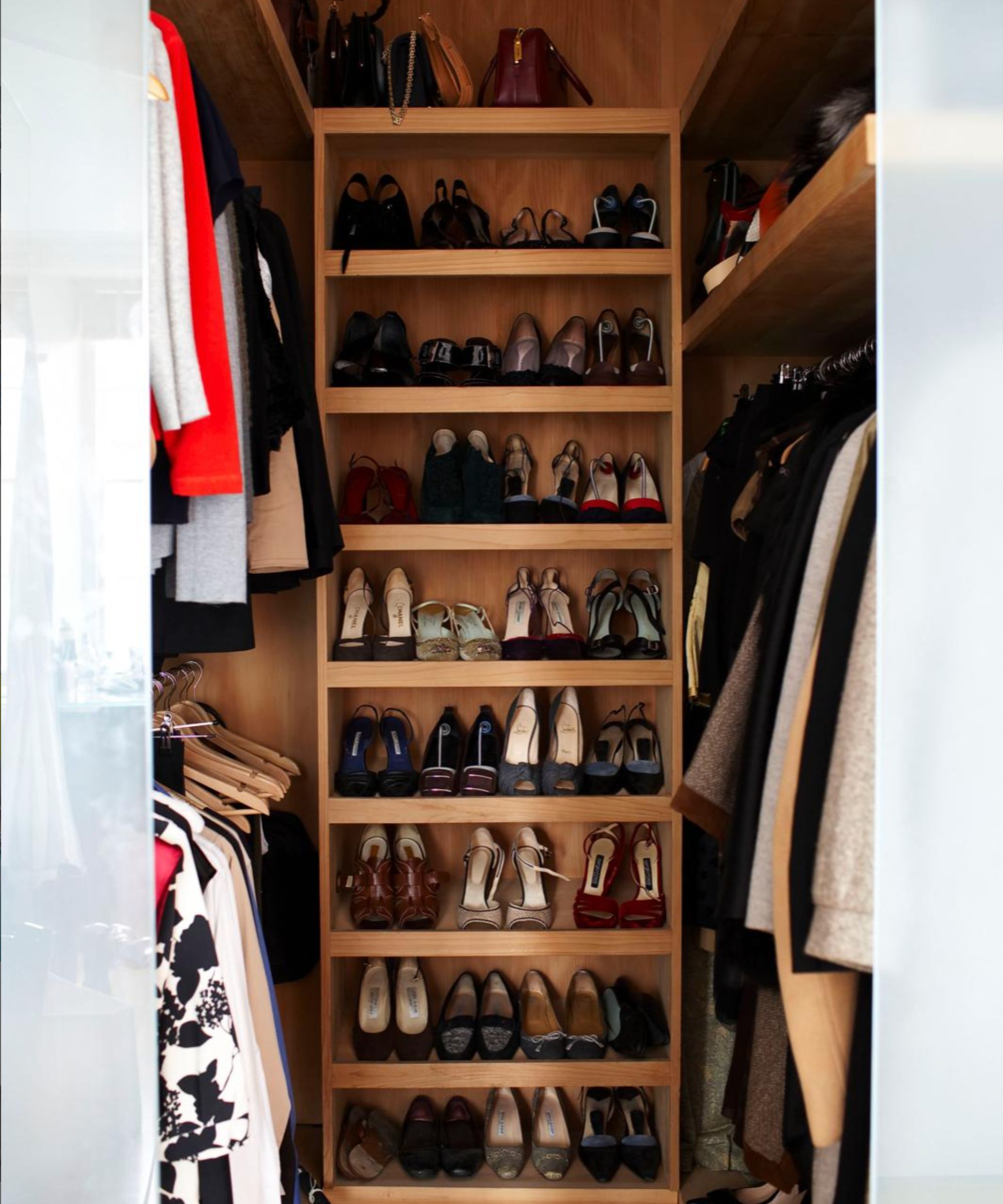
Sorry, but that pile of shoes by your door is almost definitely in need of a cleaning. While you can wash shoes in the washing machine, sometimes they just need a quick refresh to have them smelling fresh.
‘If your shoes smell unpleasant, spray rubbing alcohol on them to help deodorize them,’ says Holevich. ‘Afterwards, set them out exposed to the sun to fully air dry, which will further help the alcohol in killing the bacteria that are causing the smell.’ In particular, this will be most helpful for running sneakers or sweaty gym shoes but can be used on any type of shoe, from heels to hiking boots.
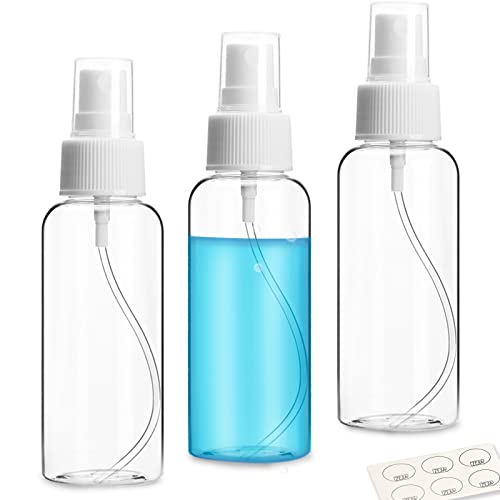
Rubbing alcohol is one of the best low-cost cleaning options on the market. The uses are endless and it can be kept and stored over a long period of time.
FAQs
Can I mop with rubbing alcohol?
Mopping with a rubbing alcohol and water solution will sanitize your floors, and kill any bacteria or germs.
However, it doesn't have any actual cleaning properties, as it's not a detergent, so it's recommended to mop your floors with your usual floor cleaner, like this popular Multi-Purpose Cleaner from Walmart, and then follow up with a rubbing alcohol solution on any stubborn stains you might have missed.
So, as one of the essential cleaning tools everyone needs, adding rubbing alcohol to your arsenal is a great way to have your home looking gorgeously clean.
Sign up to the Homes & Gardens newsletter
Design expertise in your inbox – from inspiring decorating ideas and beautiful celebrity homes to practical gardening advice and shopping round-ups.

Ottilie joined Homes & Gardens last year, after finishing a Master's in Magazine Journalism at City, University of London. With previous contributions in Livingetc and Motorsport Magazine, she produces content for the Solved section on the website, focusing on clever tips and tricks to keep your home beautiful, organized and clean. She also has an undergraduate degree in English Literature and History of Art from the University of Edinburgh, where she developed a love for inspiring interiors and architecture.
-
 Kevin Bacon and Kyra Sedgwick's rustic kitchen island is stunning, but controversial – designers say you can get the look without the hassle
Kevin Bacon and Kyra Sedgwick's rustic kitchen island is stunning, but controversial – designers say you can get the look without the hassleA popular material finds an unorthodox home in the couple's kitchen, but experts disagree on whether it should be used – here's how to do it instead
By Sophie Edwards
-
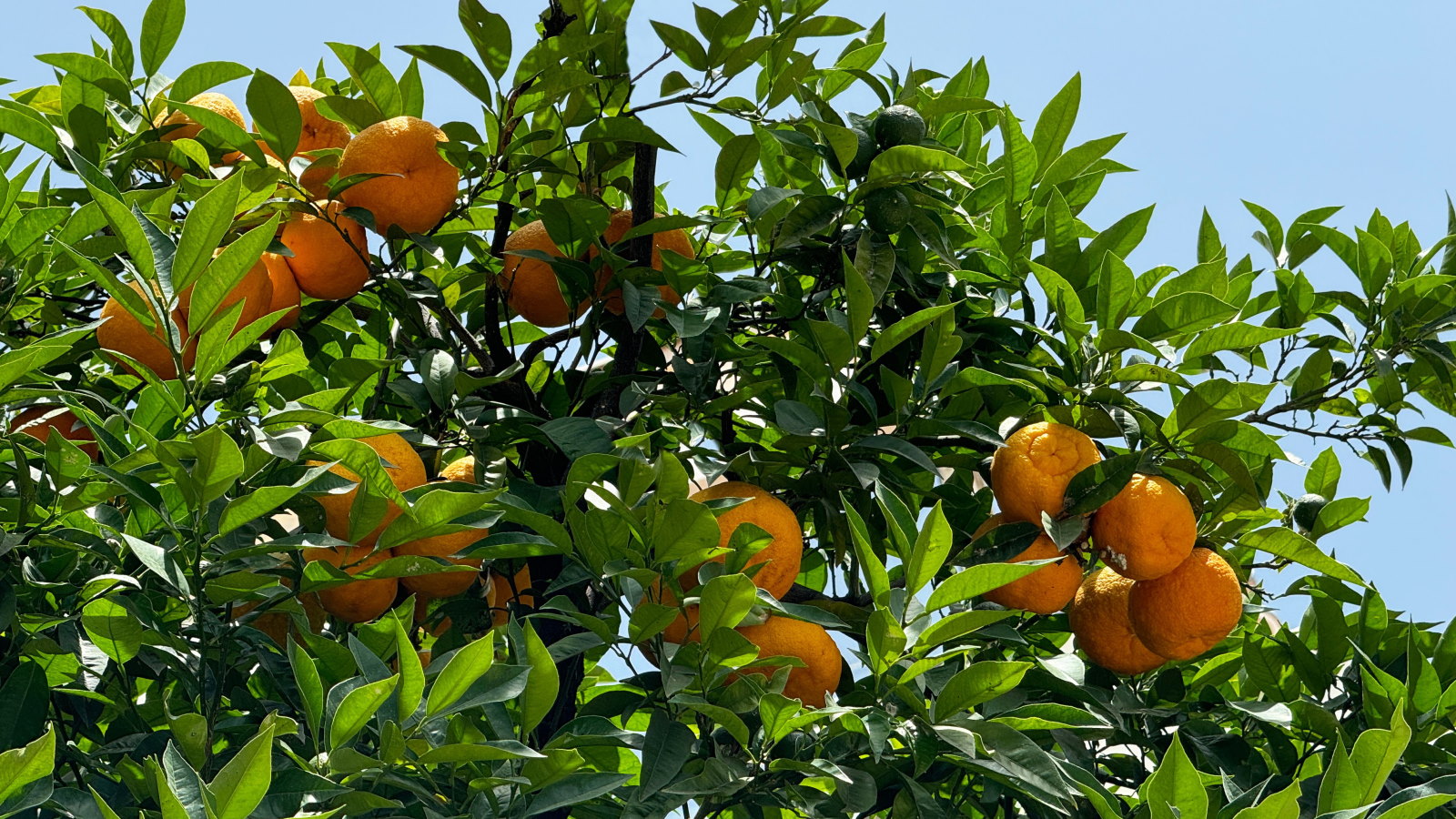 How to grow grapefruit for homegrown sweet and tangy, highly nutritious harvests – a fruit tree expert shares their planting and care tips
How to grow grapefruit for homegrown sweet and tangy, highly nutritious harvests – a fruit tree expert shares their planting and care tipsFrom planting to harvesting, this is all you need to know about grapefruit trees
By Drew Swainston
-
 I've spent over 200 hours testing vacuums and swear by my two Dysons – this is how I properly clean a Dyson vacuum filter for longer-lasting appliances
I've spent over 200 hours testing vacuums and swear by my two Dysons – this is how I properly clean a Dyson vacuum filter for longer-lasting appliancesYour Dyson vacuum will last much longer and clean at its best
By Dan Fauzi
-
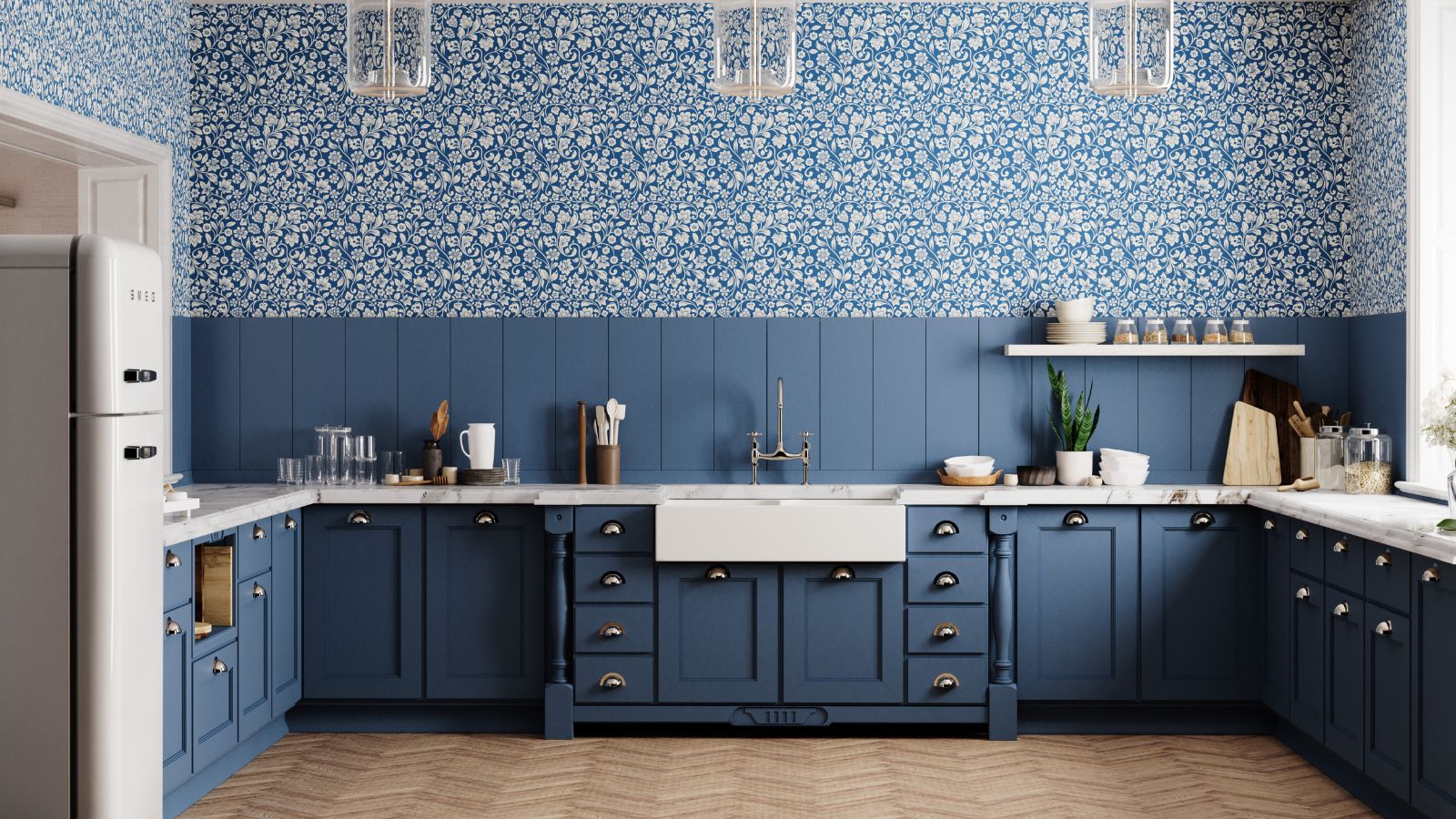 Do cleaning products expire? Professional cleaners warn time could make them ‘less effective, and in some cases, irritating to use’
Do cleaning products expire? Professional cleaners warn time could make them ‘less effective, and in some cases, irritating to use’For the best results, it pays to stay on top of the timeline of your cleaning products
By Chiana Dickson
-
 How to clean a patio – 6 different methods, and when you must use a chemical cleaning agent
How to clean a patio – 6 different methods, and when you must use a chemical cleaning agentFrom manual scrubbing, natural solutions or calling in the pros, industry experts reveal the benefits and considerations of each method
By Andy van Terheyden
-
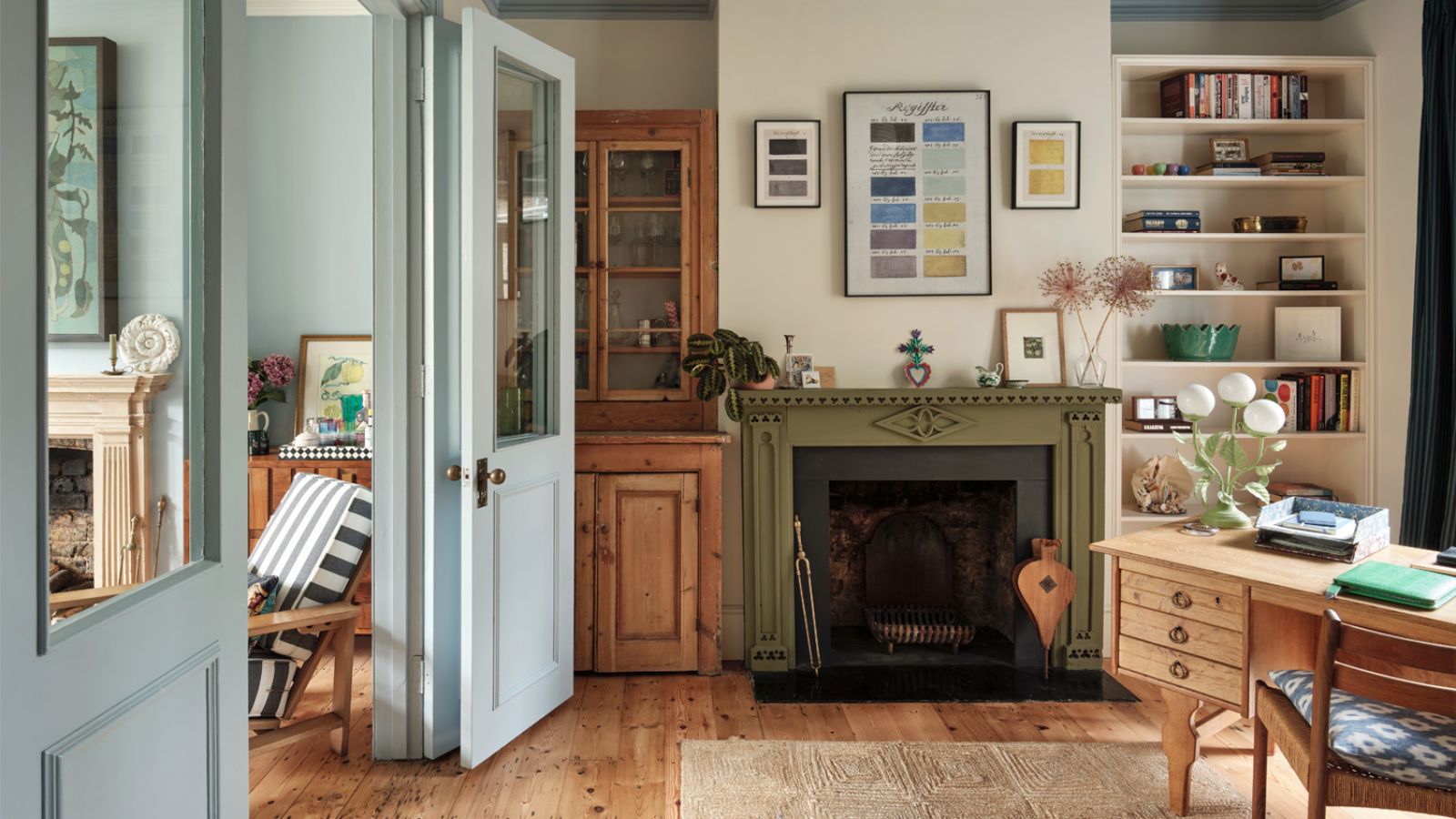 5 surprising but brilliant ways to clean with old socks – from perfectly buffing stainless steel to deterring pests naturally and more
5 surprising but brilliant ways to clean with old socks – from perfectly buffing stainless steel to deterring pests naturally and moreTackle dust in tricky corners, clean your mirrors and even banish bad odors with those rogue single socks
By Andy van Terheyden
-
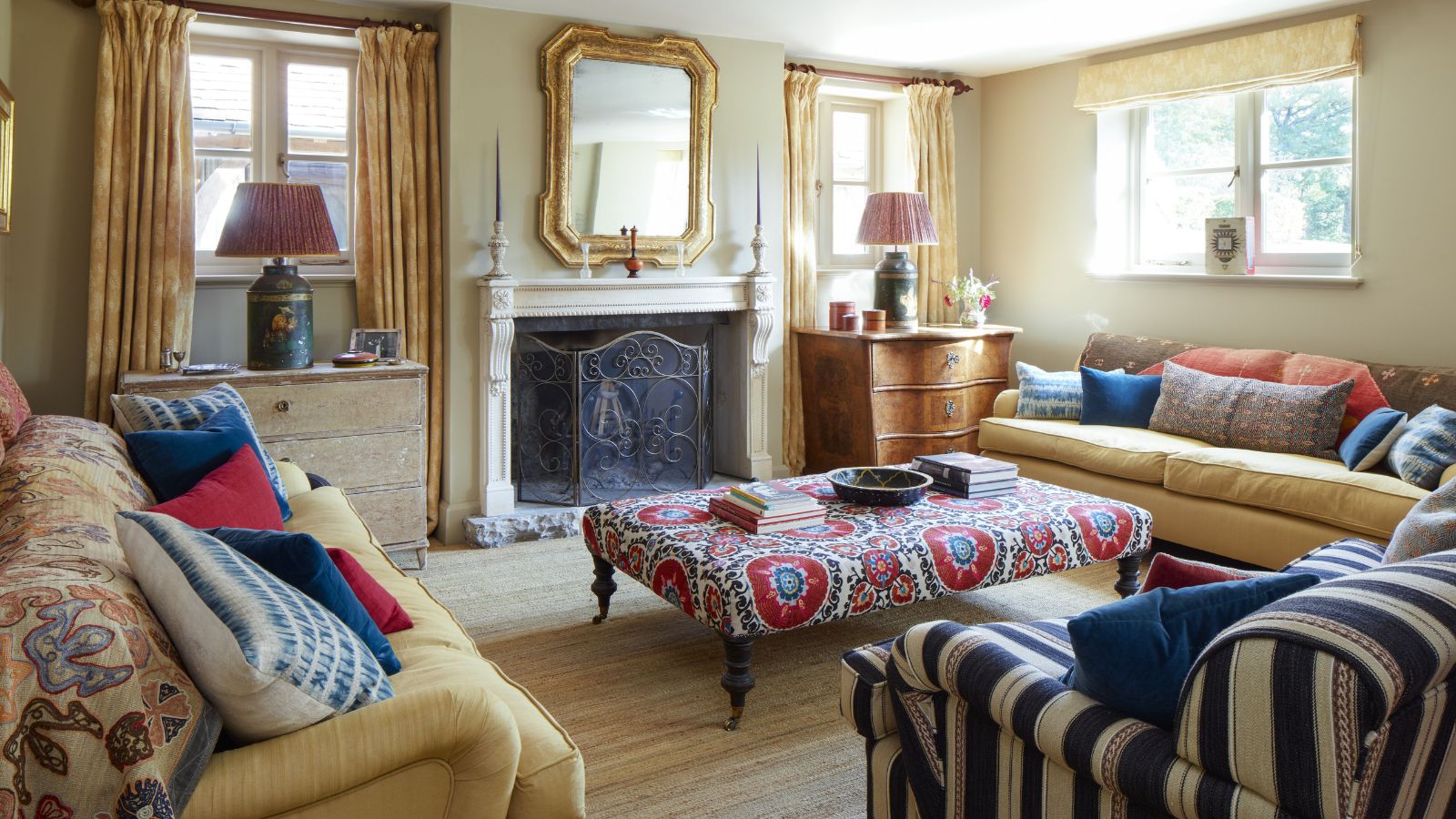 5 things people with clean upholstery always do – simple, quick and oh-so-effective
5 things people with clean upholstery always do – simple, quick and oh-so-effectiveEnsure your furnishing looks clean year-round with these expert tips
By Seraphina Di Mizzurati
-
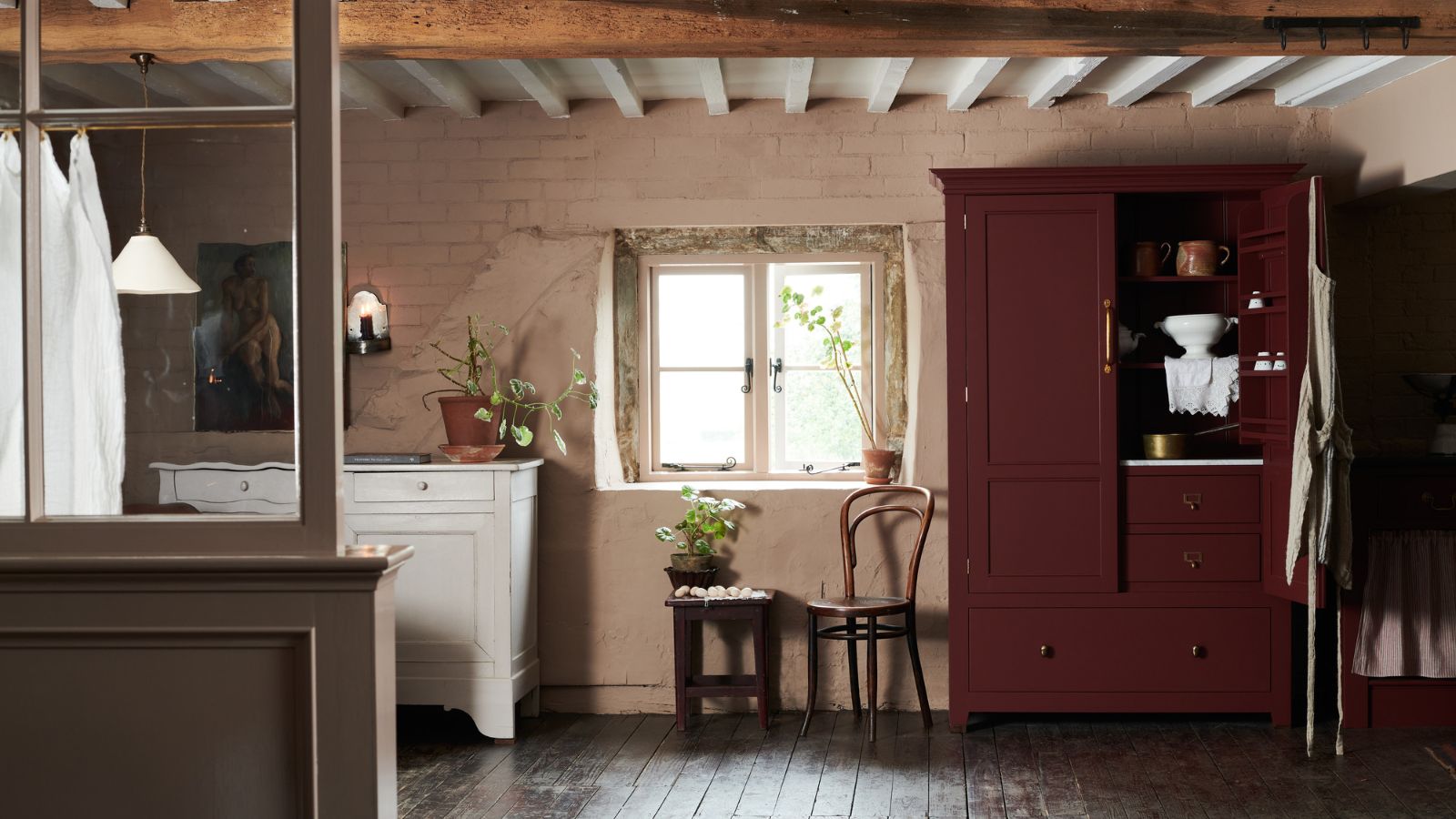 'Wick away the ick' – 6 things people with clean laundry rooms always do to make this hardworking space shine
'Wick away the ick' – 6 things people with clean laundry rooms always do to make this hardworking space shineThese tips on how to clean your laundry room will banish grime
By Seraphina Di Mizzurati
-
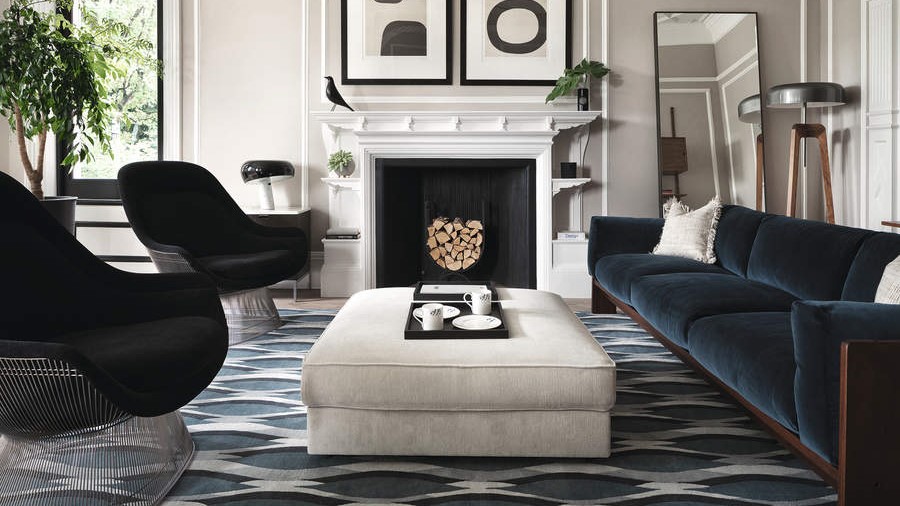 How safe are carpet deodorizers? As a seasoned vacuum tester, I urge you to try alternative methods
How safe are carpet deodorizers? As a seasoned vacuum tester, I urge you to try alternative methodsNatural cleaning is always the answer
By Dan Fauzi
-
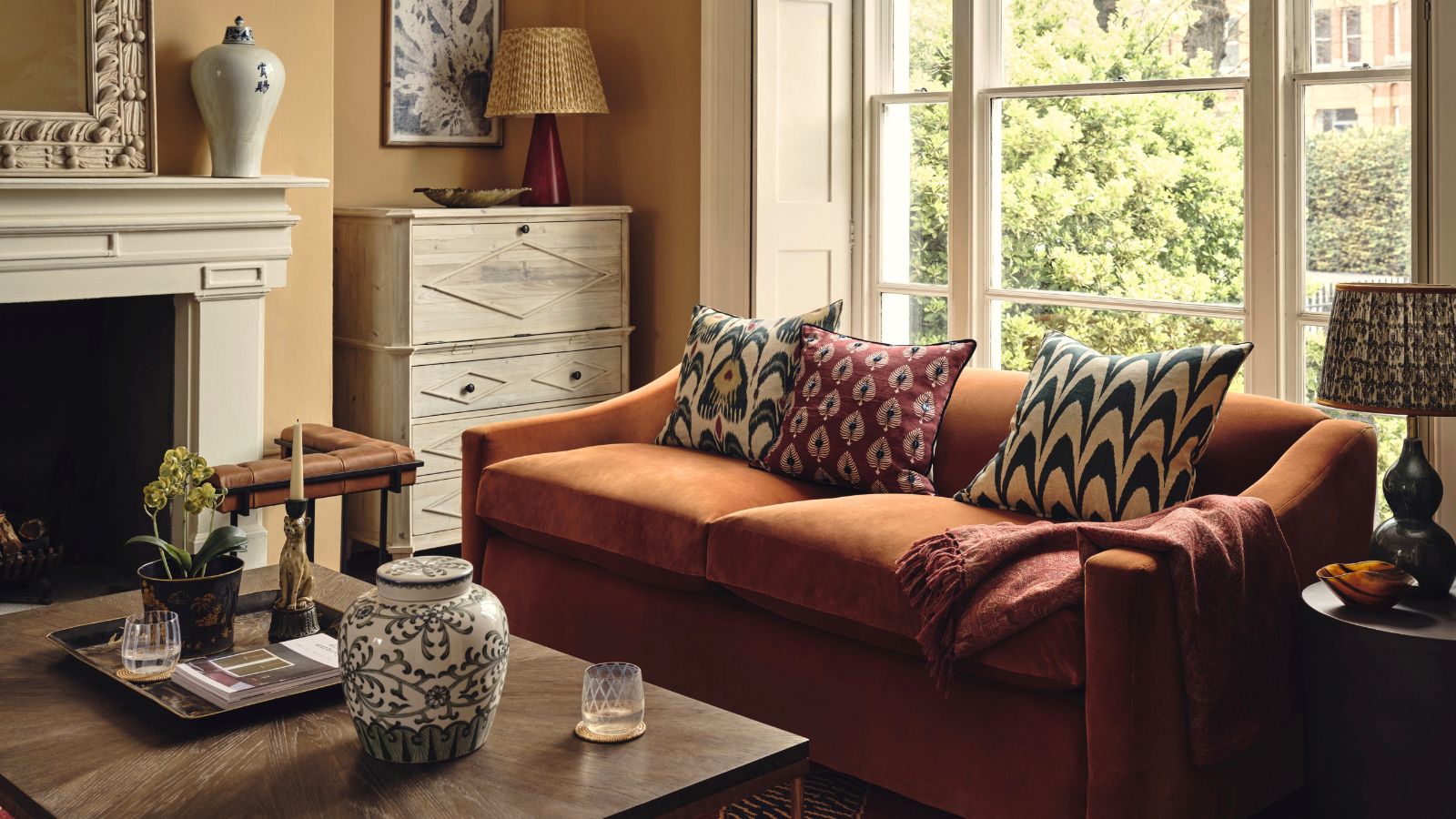 'The world will not end' – 5 cleaning habits to quit for a happier, easier life, and what to do instead
'The world will not end' – 5 cleaning habits to quit for a happier, easier life, and what to do insteadGet your home sparkling, minus the stress
By Ciéra Cree